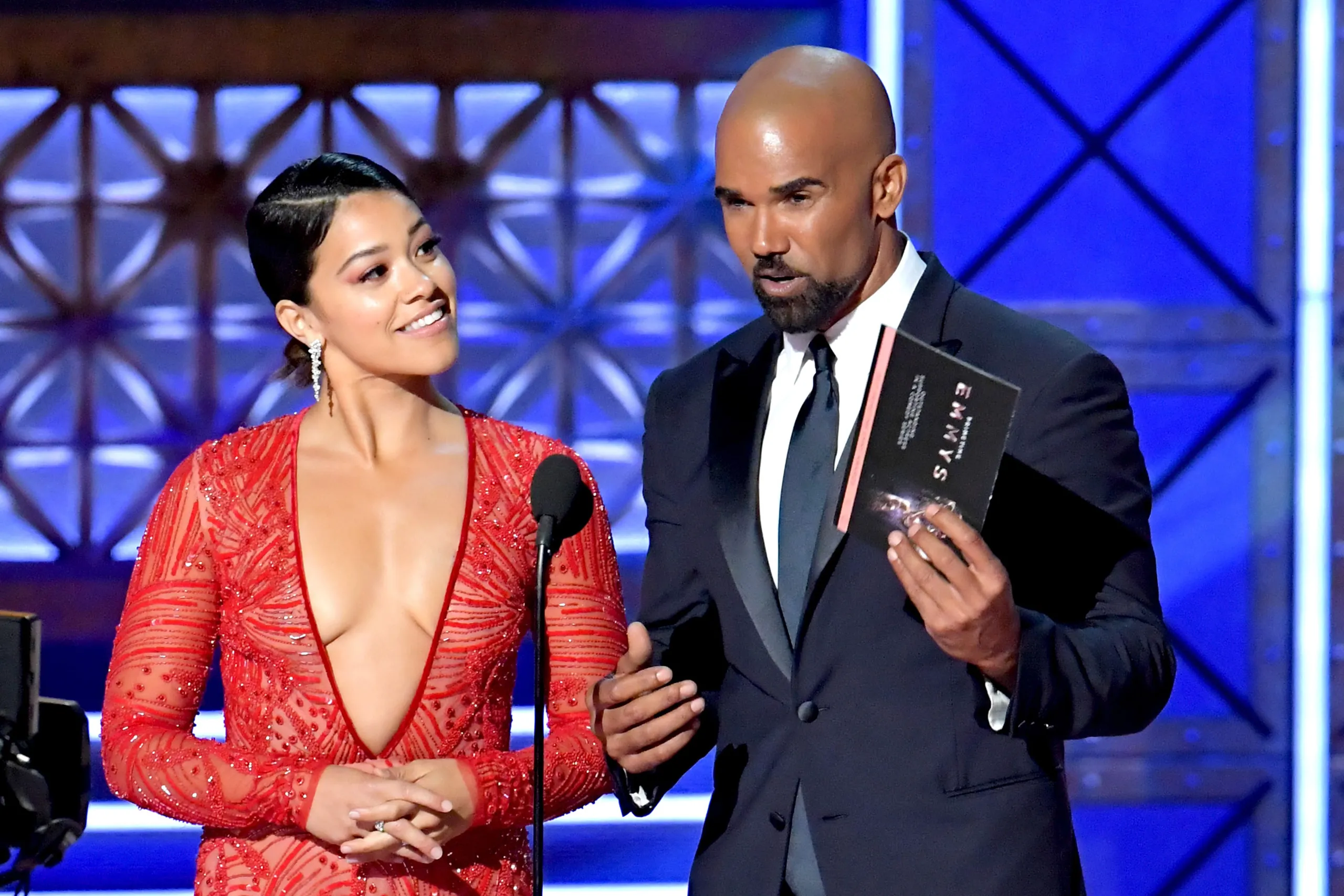We Need to Talk About the Emmys’ Latinx Problem
Sep 18, 2017

Photo: Getty Images
After last night’s Emmy Awards, much of the Monday morning chatter was spent discussing Sean Spicer’s strange cameo, and the ceremony’s historic wins for Donald Glover (first black person to win an award for Outstanding Directing for a Comedy Series); Lena Waithe (first woman of color to win an Emmy for comedy writing); and Riz Ahmed (first man of Asian descent to win an acting Emmy). Their Emmy wins were applauded by the media and celebrated as a major triumph for diversity on TV. But amidst all the self-congratulatory praise, there remained one glaring omission: Where were the awards and nominations for the Latinos?
Early Monday afternoon, actor John Leguizamo was among the few voices to recognize the slight, pointing out the lack of Latino representation at the ceremony. “Most diverse #EmmyAwards but where were the Lantinxs??” he wrote on Twitter.
It’s a good question. At last night’s Emmys, not a single Latino actor, director, producer, or writer was nominated for any of the ceremony’s big awards. (The only one to break through was Lin-Manuel Miranda, nominated for Outstanding Guest Actor in a Comedy Series for a stint hosting Saturday Night Live.) The last time a Latino American actress won an Emmy was 10 years ago, when America Ferrera became the first and only Latin American actress to win Outstanding Lead Actress in a Comedy Series for her work in Ugly Betty. As for Latino actors, none of them have stepped up to the Emmys stage to accept an award since 1990, when Jimmy Smits won Outstanding Supporting Actor in a Drama Series for his role as Victor Sifuentes in L.A. Law. To this day, not a single Latino has taken home an Emmy for Outstanding Lead Actor or Actress in a Drama Series, Outstanding Lead Actor in a Comedy, or any of the prizes for directing, producing, or writing a TV series. In fact, the most successful Latino on TV is Louis C.K.—he’s won six writing awards for his work on variety series and specials—a man most people have no idea is of Mexican ancestry.
Leguizamo, whose latest one-man show, Latin History for Morons, is heading to Broadway later this fall, has been one of the loudest critics of the lack of Latin American representation on television and in Hollywood. “We need a lot more positive Latin role models in movies and in television. They exist! It’s not fiction,” he said in an interview with Vogue in April. “I go to a lot of political rallies and Latin caucuses in D.C., and you see tons of 20-year-olds, 30-year-olds, all college-educated, political, super-intelligent, confident, and hundreds of them, trying to make a difference across America. Where are all these people in movies and television?”
He makes a good point. As of 2016, 17.8 percent of the American population, or roughly 54 million people, identified as Hispanic or Latino American. In other words, the Latinx community in the United States is the largest and one of the fastest-growing minority groups in the country—yet their representation on TV continues to worsen. According to a report by Columbia University’s Center for the Study of Ethnicity and Race, Latino participation in the entertainment industry (both behind and in front of the camera) is lower than it was 70 years ago. And when Latinos do make it on screen, male actors are usually cast in shows centered around the drug trade, while actresses are relegated to the stereotypical part of house maid or feisty maneater with an accent.
But Latino actors shouldn’t be discouraged just yet. Earlier this month, it was revealed Gina Rodriguez, the star of the CW’s Jane the Virgin, was busy developing two Latino-centered TV shows for CBS and the CW: Have Mercy will follow the life of an immigrant Latina doctor who sets up a makeshift clinic in her Miami home, while Illegal is based on the true story of Rafael Agustin, who learned he was an illegal immigrant as a teenager in high school.
Rodriguez’s projects not only present a welcome opportunity for better storytelling for Latinos, they also come at a moment when President Trump is threatening to rescind DACA protections for more than 800,000 Dreamers who immigrated unknowingly into this country as children. Now is precisely the time when the American public needs to be exposed to their stories. We know that TV has the power to change long-held cultural and political opinions—see: Will & Grace. As Alec Baldwin said in his Emmys acceptance speech last night, people rarely remember a bill that was passed or an address by the president, but they do remember a song, a line from a movie, a play. “What we do is important,” Baldwin said. “And for all of you out there in motion pictures and television, don’t stop doing what you’re doing. The audience is counting on you.” It’s time everybody started adding Latinos into that equation as well.
Read the full article here.
